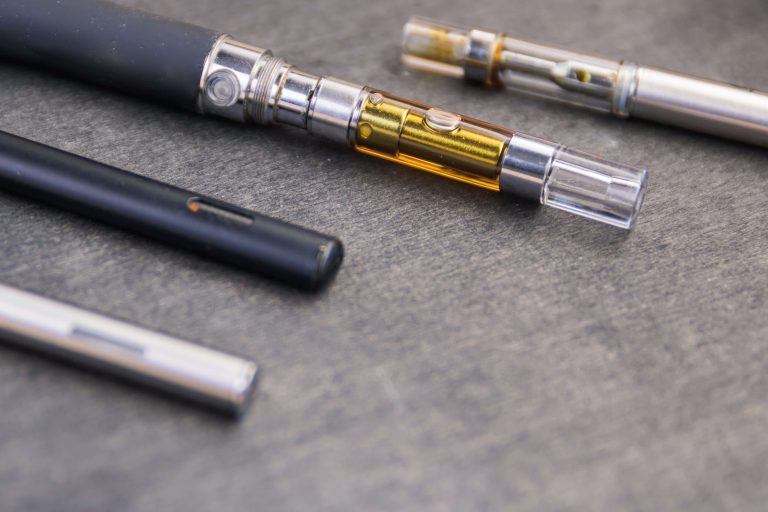While medical and adult-use cannabis remain illegal in Tennessee, it’s pretty easy to find hemp-derived delta-8 THC products that are marketed as psychoactive including vape carts and dabs. But a new bill will regulate delta-8 THC products for adults 21 and over with testing and tax requirements.
State House Majority Leader William Lamberth (R-Portland) and Sen. Richard Briggs, (R-Knoxville) introduced a bill on Jan. 25 to regulate products containing hemp-derived cannabinoids, such as delta-8 and delta-10 THC, the second time such a bill was introduced.
Gov. Bill Lee (R-Tennessee) signed the bill to regulate delta-8 THC products in a similar manner to cannabis products. Senate Bill 0378 and its companion bill in the lower chamber House Bill 0403 will implement a tax and regulate cannabinoids derived from hemp via what some describe as synthetic processes.
The bill will ensure that delta-8 THC products and other hemp-derived products are inspected by the Department of Agriculture.
While in the wild, cannabis has trace levels of delta-8 THC, in order to get high from the compound, “high levels of delta-8 THC are produced artificially by chemically converting CBD or delta-9 THC through a process known as isomerization,” NORML’s Dale Gieringer explains.
Often the concern is potentially dangerous residuals that could be avoided if the products are regulated in a similar manner as products made with cannabis-derived cannabinoids.
“Delta-8’s been completely unregulated up to this point, and what the bill is trying to do is trying to assure the public and the consumer that the product they’re buying is what it says it is, that it doesn’t have contaminants,” Sen. Briggs said. “We’re not going to sell it to people under 21 years of age.”
“We started off to where we have one side that says, ‘Let’s do nothing.’ You have the other side that says to ban it,” Sen. Briggs said. “By working together, we were able to meet in the middle.”
Brigg’s co-sponsor simply wanted delta-8 THC products to be out of reach for minors.
“Delta-8 is a legal substance that can be sold and packaged in the form of candy or gummies; it often has a very high concentration of THC,” Rep. Lamberth stated. “There are no regulations and no legitimate way for anyone to know exactly what they are buying. Nothing in our current law prohibits a child from purchasing delta-8.”
New Rules for Hemp-Derived Cannabinoids in Tennessee
The bill will ban the sale of hemp-derived cannabinoid products to people under the age of 21; add a 5% additional sales tax to any product sold at a store; and create a licensing, quality testing, regulatory, and enforcement process through the Tennessee Department of Agriculture.
The bill will establish regulations to ensure inspection and packaging requirements. Companies will be subject to testing from a third-party lab and be required to put their product in child-resistant packaging.
“Basic food-grade things,” Devin Aracena, co-founder and CEO of CANVAST Supply Co., told WKRN. “The same standard you would want to see your packaged food in a grocery store be held to, we’re going to hold these products to it, as well.”
Some hemp sellers in the state support the new law.
Aracena joined forces with Cultivate Tennessee, a coalition of cannabis and hemp-promoting businesses and professionals, to help draft the legislation.
Tennessee House Rep. G.A. Hardaway is a sponsor of the bill on the House side, and told ABC 24 that this is what hemp companies need to do if they want to be taken seriously.
“This gives us a chance to take a serious approach to hemp and CBD oil, and in doing so, to kind of get our foot in the door to start a real discussion—[an] intelligent discussion—about marijuana,” Hardaway said.
